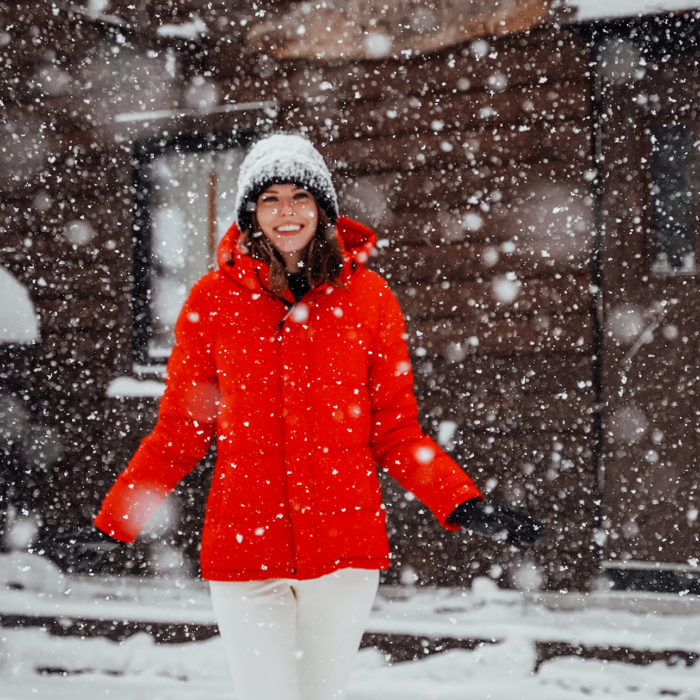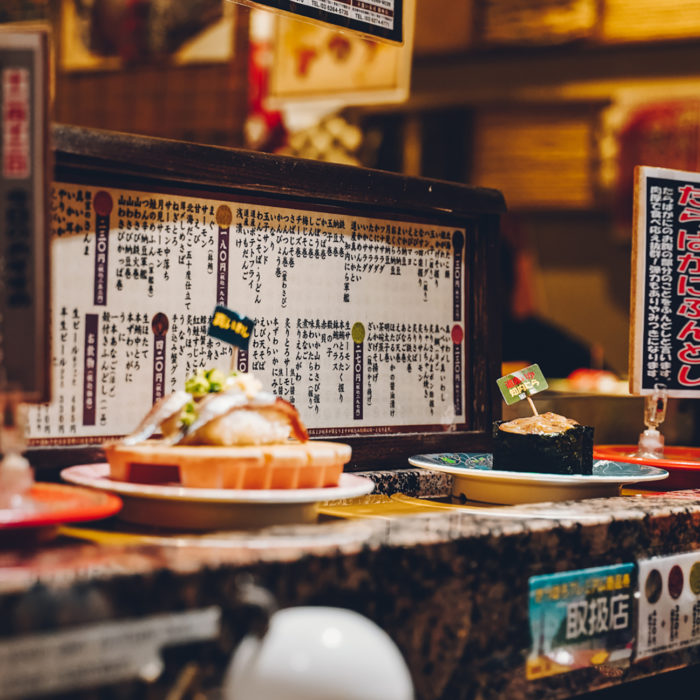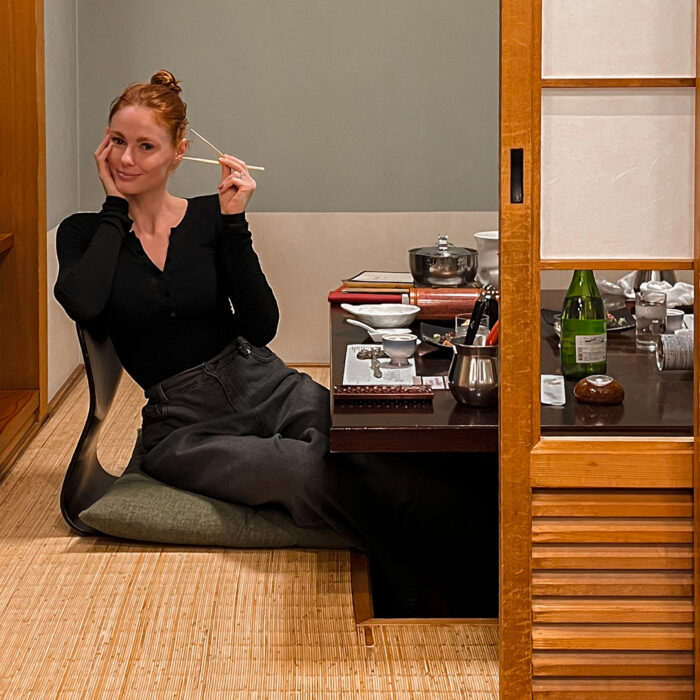There was one experience I knew I had to see and enjoy for myself during our one week visit to Japan, and that was to stay in a ryokan. Ryokans are more intimate than hotels, and they provide a much more authentic Japanese experience. Ryokans are Japanese inns where shoes are not allowed to be worn inside, tatami mats cover the floors, onsens are used for relaxation, kaiseki meals are prepared for breakfast and dinner, and guests are encouraged to wear yukatas. While ryokans tend to be much more expensive than a regular hotel room, what comes with that price makes it all worth it.
Did you know that the oldest hotel in the world is a ryokan? While we didn’t stay at that specific ryokan, I found that fact absolutely fascinating, and after experiencing a stay in a ryokan myself it wasn’t hard to see how that could be true since staying in a ryokan is all about preserving culture.
After spending the weekend skiing in Niseko, we headed north through the mountains to the outskirts of the city of Otaru on Ishikari Bay. There we checked into the ryokan Kourakuen, beneath the mountains and snow covered trees, and it didn’t take long for me to fall in love with this spot.
So what makes a ryokan so special to stay in? Well I knew I was in for a special treat when I first arrived and was kindly informed that I needed to remove my shoes. They kept my snow shoes at the front in a designated room, and every time I needed to depart the ryokan, they would head back into the room to retrieve my shoes and provided me a chair to sit on to put them on. The living room that overlooked the gardens housed comfortable chairs and a bar, and we were seated there upon check in. Next thing I knew, a woman dressed in a yukata served me a delicious little glass mug of hot plum wine (plum wine is popular in Hokkaido).









One thing that sold me on staying at Kourakuen was their food presentation. Hands down this ryokan had some of the best food I have ever had in my life. Kourakuen serves all their food, breakfast and dinner (lunch is not served here), kaiseki style. Kaiseki is several courses of regional and seasonal Japanese cuisine, served in small dishes. Kaiseki is how the nobles of Japan would typically eat, and I definitely felt noble after experiencing my first kaiseki meal. I gave the hotel a list of my allergies and food restrictions in advance, which the chef took very seriously and made sure all my of dishes would be ones I could truly enjoy without any worry.
At 6:30 pm each evening, we would hear a faint knock on our sliding door, and our table would be cleared and wiped down to be prepared for our dinner. Our first course would be laid out before us, with each course consisting of 3-4 dishes. We’d be left alone to enjoy each course in our meal before we’d hear a faint knock again and our sliding doors would open to be presented with the next course. 7 courses and 22 dishes later, I suddenly was never going to look at Japanese food outside of Japan the same way ever again. This meal was so incredible that as someone who normally despises tuna, I found myself wanting to steal my partner’s.






Something else that makes ryokans unique to stay in is the fact that you’re presented with yukatas to wear around the ryokan during your stay. While it’s not required, it’s definitely encouraged. Yukatas are cotton kimonos that are traditionally worn inside. All the other guests we encountered on our visit took advantage of the yukatas. I joked that I didn’t need to pack for this portion of the trip, since different kinds of yukatas are available at the front for each day of your visit. The only time I didn’t wear a yukata was when we ventured beyond the ryokan to explore downtown Otaru, a 15 minute drive away.




Staying in a ryokan is a true ultimate luxury but one that I think was absolutely worth every penny. All meals were included in the price, as was the use of our private onsen and our yukatas. Even if you just get to spend one night at a true Japanese ryokan, you’ll leave feeling like you have truly gotten a glimpse at respected Japanese culture.
Would you stay in a Japanese ryokan?








Wow! So chic! Amazing travel ❤
MY FASHION LIFESTYLE BLOG – Ms NatiKa